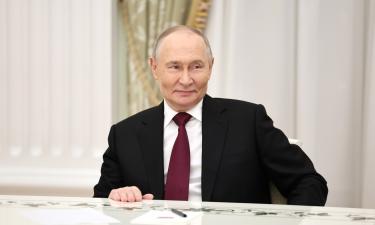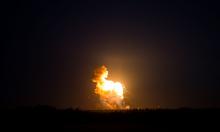Germans voting: many voters undecided between Merkel and Schroeder
Germans began voting Sunday in a crucial and close election that could see Europe's largest economy change leadership as millions of voters, many of them undecided until the end, headed to the polls on a crisp, clear morning.
With polls showing a tight race, conservative challenger Angela Merkel began the day with a good chance of becoming the country's first female chancellor. But whether a victory would give her the convincing mandate she needs to forge ahead with tax and labor market reforms remained unknown.
Some voters said they preferred to keep incumbent Chancellor Gerhard Schroeder and his Social Democrats in power because of his efforts to keep the country out of the 2003 U.S.-led invasion of Iraq and his push for diplomacy with Iran.
If Merkel's Christian Democrats cannot win a majority with her preferred partners _ the small, pro-business Free Democrats _ the former physicist from what was East Germany could be forced to share power in a coalition with Schroeder's Social Democrats.
The Forsa poll showed some 25 percent of voters were still undecided, which could swing the results many ways. Schroeder called for the election a year ahead of time in frustration at resistance to his attempts to fix the economy, as unemployment hit record highs in his seven years in power and growth remained sluggish. His limited measures cutting taxes and long-term jobless benefits have been slow to show convincing results.
An estimated 500,000 of the 2.6 million people of Turkish origin in Germany are German citizens with the right to vote. Turks have traditionally supported Schroeder's Social Democrats, though recently they have been angered by his social welfare and unemployment reforms, which have seen cuts to benefits. Still, most think the vast majority of the Turkish vote will go to
Schroeder because of the EU issue and the fact that Merkel is promising deeper cuts, AP reported.
Subscribe to Pravda.Ru Telegram channel, Facebook, RSS!




